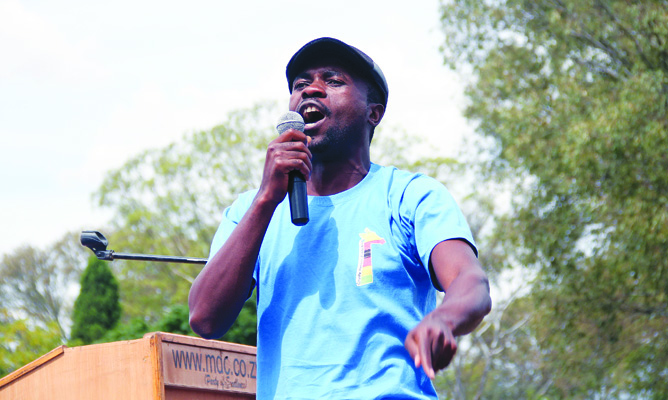
BY NIZBERT MOYO
Civic society organisations (CSOs) are calling on the government to set-up a missing persons database for suspected abduction victims dating back to the Gukurahundi period.
The call was made by CSOs at an enforced disappearances indaba organised by the Habakkuk Trust in Bulawayo last Friday.
During the Gukurahundi atrocities in the early 1980s, several people in Matabeleland and Midlands were abducted and have never been seen again when the Fifth Brigade was deployed to deal with suspected dissidents.
In the past two decades, many MDC activists, including Patrick Nabanyama, Paul Chizuze and Itai Dzamara disappeared after being abducted by suspected State security agents. Habakkuk trust director Dumisani Nkomo implored the government to set up a missing persons database to help bring closure to victims’ families.
“The Gukurahundi issue must be talked about in public. This was highlighted to the President (Emmerson Mnangagwa) at State House last week. We should have a detailed database for the missing persons,’’ Nkomo said.
He added that the database would be used by survivors in terms of economic benefits for the dependents of those who disappeared or who were killed since some left properties. “There is need to put names to those faces of people who died, not just a figure. This will bring closure to the issue of missing persons,” he said.
Nkomo said the missing persons need to be quantified for the nation to be able to come up with means of laying the issue to rest.
- Chamisa under fire over US$120K donation
- Mavhunga puts DeMbare into Chibuku quarterfinals
- Pension funds bet on Cabora Bassa oilfields
- Councils defy govt fire tender directive
Keep Reading
Patson Dzamara, brother to the missing journalist-cum-activist Itai, said he now bears the burden of taking care of his abducted brother’s family, while also fighting to ensure that the government is held to account.
“We must talk with one voice. The new dispensation has to be taken to task until such issues have been addressed. If ever this country is to move forward, we must re-engineer our social fabric. For us to deal with this, we need to invoke a truly sincere healing process because we are a wounded lot. Unless we speak out, there is not going to be closure in Gukurahundi, Murambatsvina issues and farm invasions that were done haphazardly,’’ Dzamara said.
Human rights activist Jestina Mukoko, who was abducted by State security agents and spent almost three weeks at an unknown detention area in 2008 after being accused of plotting to topple then President Robert Mugabe’s administration.
She said many survivors were still traumatised.
“If you throw a stone in Tsholotsho and other places in Matabeleland, it is likely to hit a widow of a Gukurahundi victim. Up to now, people in Tsholotsho are still traumatised,’’ Mukoko said.











